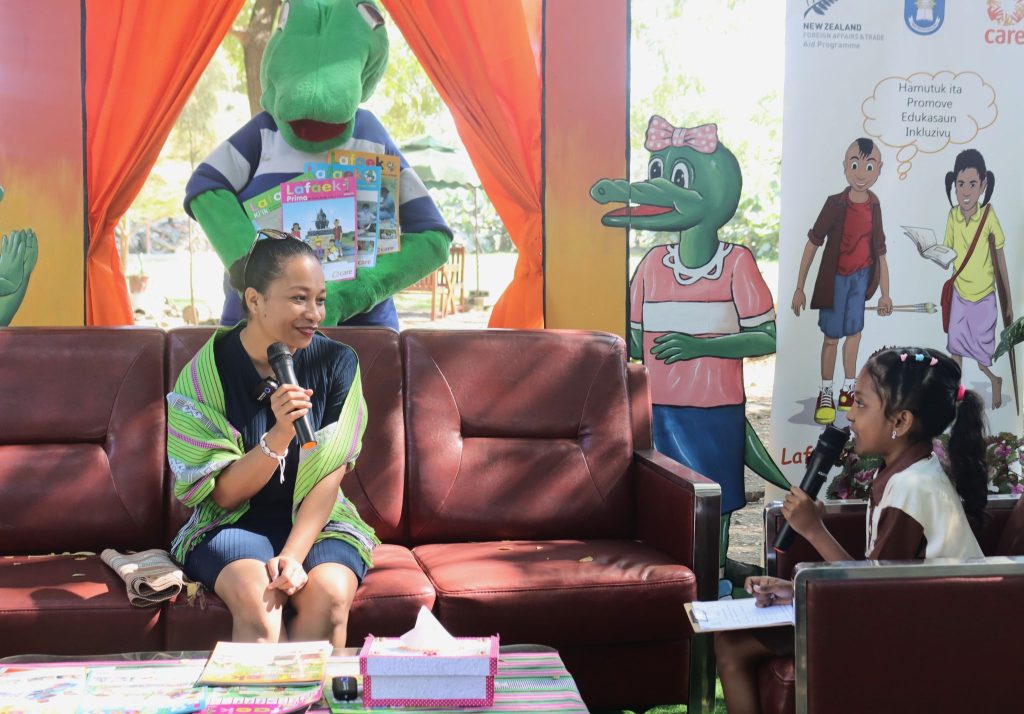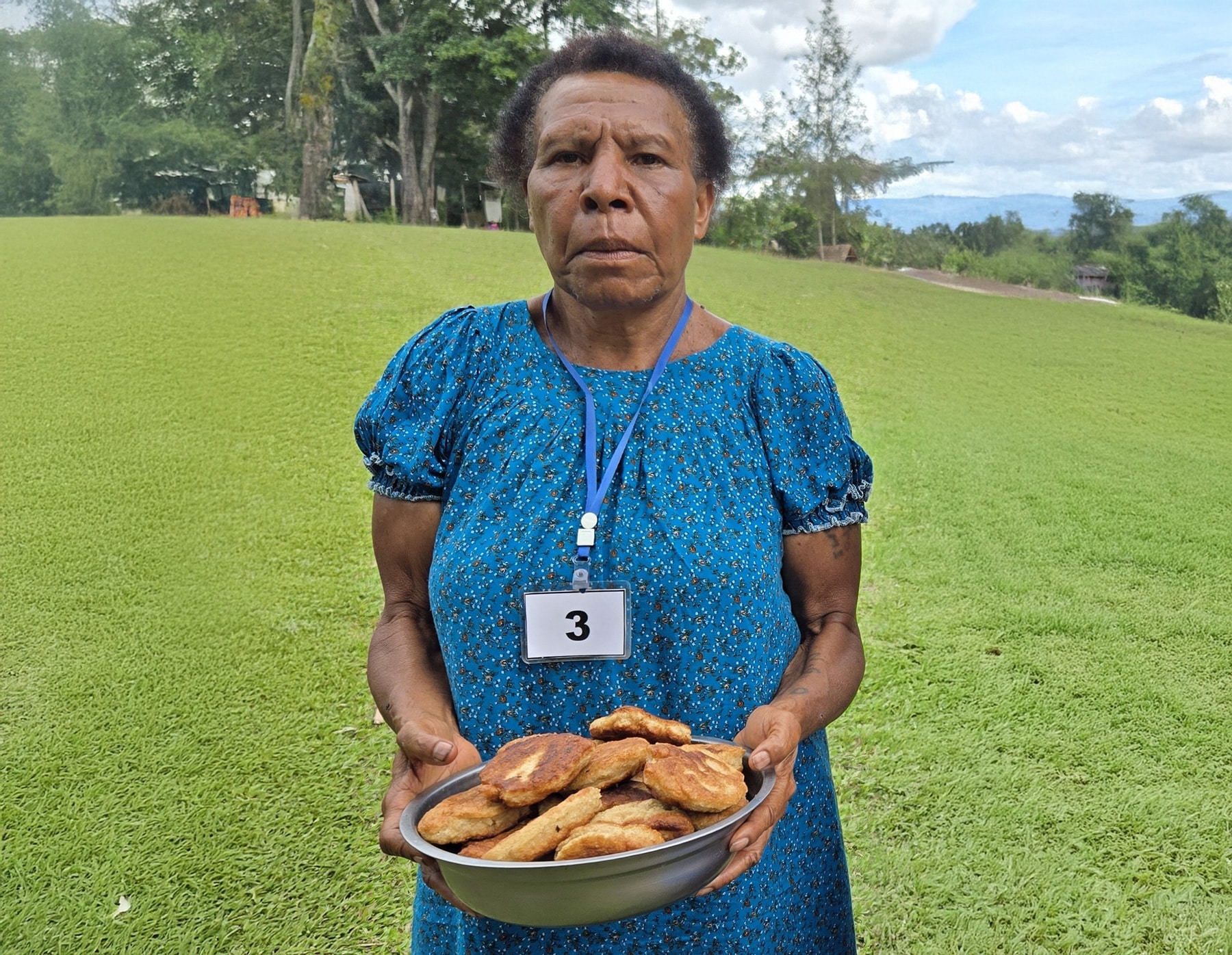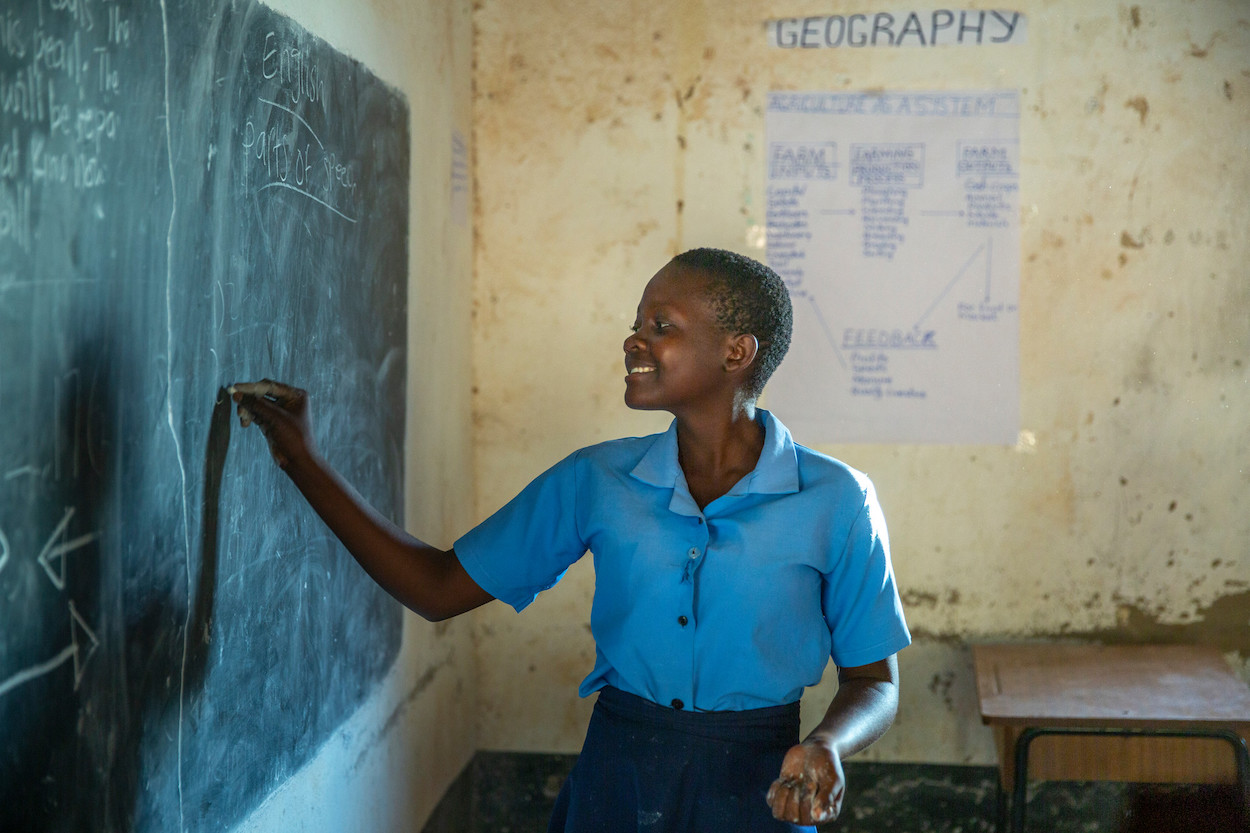Education and the right to work are two of the most powerful tools in overcoming poverty.
Women should have equal access to the resources needed to earn an income such as education, land and credit. We help women access the skills, knowledge and resources they need to succeed and lead their families out of poverty.
CARE works to increase access to quality education for all children, particularly girls living in fragile and conflict-affected settings and help women fight for their rights to get a job, be paid equally and treated fairly.
Fast Facts
131 million girls around the world are missing out on school.
66% of the world’s young people don’t meet the minimum skills needed to meaningfully engage in an international economy.
Girls are 50% more likely to lose the opportunity for education than boys.
Education and the right to work are two of the most powerful tools in overcoming poverty.
Impact stories
Dircia in Timor-Leste
CARE in Timor-Leste is renowned for its education sector support, particularly in improving literacy, numeracy and quality of teaching. We have partnered closely with Timor-Leste’s Ministry of Education since 2002.
Since 2001, CARE has produced and distributed the Lafaek Magazines, which features educational content for schoolchildren, teachers and parents. These magazines, distributed three times per year to government-registered pre and primary schools and surrounding communities, provide vital messages for families and communities around health, hygiene, nutrition and agriculture.
Lafaek Ki’ik and Lafaek Prima reach all schoolchildren from preschool to grades 1-6, teaching basic literacy and numeracy skills, including positive messages about equal opportunities for boys and girls. Lafaek Ba Manorin targets teachers with innovative teaching methodologies and educational tools and Lafaek ba Komunidade provides valuable information on healthcare and agricultural practices to households across the country.
Dircia is a passionate climate change activist. At age 12, Dircia came across a story about a child’s adventure in the forest from CARE’s Lafaek magazine. The story sparked her passion for climate justice and conservation and would later inspire her to pursue a career as an activist.
Now as a young adult, and having acquired abundance of experience and leadership skills, Dircia reconnects with CARE’s Lafaek project to inspire other young people across Timor Leste to follow her lead in taking positive action for climate change and conservation.

Fokilo in Papua New Guinea
Fokilo Timo, a widow and mother of six from Nagamito Village, embraced the opportunities presented by CARE through its Australian Humanitarian Disaster READY Program and the VSLA and transformed her family’s life. Her story is a powerful example of how practical skills and financial literacy can transform vulnerability into lasting stability in the face of environmental and economic challenges.
Before CARE’s arrival, Fokilo’s family primarily relied on sweet potato and cassava for sustenance. During the dry season, cassava was often the only available food source. Prepared solely by boiling, the monotonous diet led to complaints from her children. As a widow, Fokilo faced the immense challenge of providing for her six children with limited options and no stable income apart from selling garden produce.
CARE’s introduction to the Nagamito community brought a beacon of hope. Fokilo actively participated in the training sessions, which covered vital skills such as food processing and preservation, disaster risk management, and the VSLA concept. Fokilo learned that crops like cassava (which typically spoiled within three days) could be preserved alongside bananas and sweet potatoes using new techniques.
CARE empowered Fokilo to turn these new skills into income-generating opportunities. She learned how to bake cassava, banana, and sweet potato flour, then invested in a 10kg bag of regular flour and began experimenting with mixing it with the processed cassava flour to feed her children.
Fokilo expanded her efforts to bake and sell the flour, generating much-needed income for her family. This newfound financial stability allowed her to purchase household necessities, significantly improving her family’s quality of life. “I’m seeing big change, the flour bag lasts so long, and I’m making enough money to repay my loan and have extra funds to meet my children’s needs,’ says Fokilo.

Our ancestors didn’t understand food preservation methods. CARE has introduced a life-saving skill. Now, my children and I won’t be hungry when the dry season comes; we still have our flour to [make food to] eat.
Fokilo’s story is a powerful testament to the transformative impact of knowledge and support. From a life of limited options and food insecurity, she has embraced new skills, built a small business, secured her family’s food supply, and achieved financial stability through the empowering initiatives of CARE and the VSLA.
Photos: © Lameck Luhanga/CARE, © Ala kheir/CARE, © Sylvio Fonseca/CARE and © Jacklyn Yala/@CARE.

